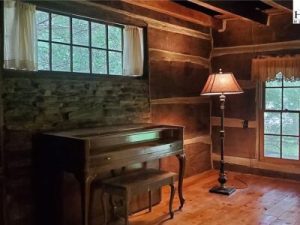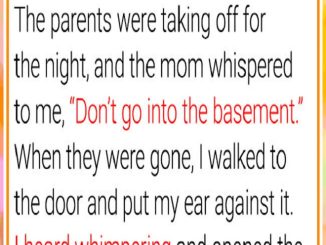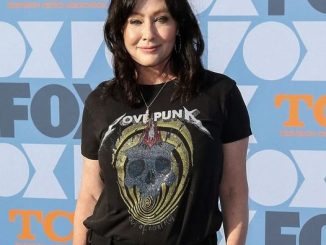
Sally Field, an Academy, Emmy, and Golden Globe-winning actress, has captivated audiences for decades with her unforgettable roles in films and TV shows like Forrest Gump, Brothers and Sisters, Lincoln, and Steel Magnolias. At 76, Field reflects not only on her storied career but also on the personal challenges that have shaped her life. Her 2018 memoir, In Pieces, offered an unflinching look at her experiences, including sexual abuse by her stepfather and struggles with depression, self-doubt, and loneliness.
The Early Years
Born on November 6, 1946, in Pasadena, California, Sally Field grew up in a family touched by show business. Her mother, Margaret Field, was an actress, while her father, Richard Dryden Field, worked as a salesman. After her parents divorced, her mother married actor and stuntman Jock Mahoney. Sally, her brother Richard, and their half-sister, Princess O’Mahoney, lived in a complex household dynamic.
Field’s career began in 1965 with the titular role in the sitcom Gidget. Though the series was canceled after one season, it marked the start of a long and prolific career. She gained greater visibility starring in The Flying Nun, which ran for three seasons. Field later admitted she struggled during this time, battling depression while navigating a role she disliked. “I just had to put my head down and go to work and do the very best job I could,” she recalled.
Field’s big-screen debut came in 1967 with The Way West. A decade later, her role in Smokey and the Bandit alongside Burt Reynolds catapulted her to stardom. The 1979 drama Norma Rae earned her first Academy Award, followed by a second Oscar for Places in the Heart in 1984. Field’s portrayal of the loving yet strong-willed mother in 1994’s Forrest Gump, a film that won six Oscars, remains one of her most iconic performances.
A Complicated Personal Life
Sally Field’s personal life has been as complex as her career. She married Steven Craig in 1968, and the couple had two sons, Peter and Eli, before divorcing in 1975. Her second marriage to Alan Greisman in 1984 produced a son, Samuel, but ended in 1994.
Field’s romantic relationship with Burt Reynolds, which lasted from 1976 to 1980, was tumultuous. In her memoir, she described Reynolds as controlling and manipulative, revealing how he convinced her to skip the Emmy ceremony where she won for Sybil. The two hadn’t spoken for 30 years before Reynolds’ death in 2018.
In In Pieces, Field also opened up about the abuse she endured from her stepfather, Jock Mahoney, during her teenage years. Her mother, she later discovered, had known about the abuse but chose to believe Mahoney’s false claims that it happened only once while he was drunk. Writing the memoir, Field explained, was her way of understanding her mother and ultimately finding forgiveness. “It was the only way I was going to find the pieces of my mother that I couldn’t put together,” she shared.
A Lasting Legacy
Today, Sally Field treasures time spent with her grandchildren, often playing video games with them in the same room where she keeps her Oscars and Emmys. Despite her illustrious career, Field shows no signs of slowing down. Her recent film Spoiler Alert and her role in the 2023 release 80 for Brady are testaments to her enduring passion for storytelling.
Director Steven Spielberg, who worked with Field on Lincoln, praised her legacy: “As an actor, she dared this town to typecast her, and then simply broke through every dogmatic barrier to find her own way — not to stardom… but to great roles in great films and television. Through her consistently good taste and feisty persistence, she has survived our ever-changing culture, stood the test of time, and earned this singular place in history.”
Sally Field’s journey is a testament to resilience, talent, and the power of authenticity, leaving an indelible mark on both Hollywood and the hearts of her audience.
Log cabin on 15 acres in the North Carolina mountains، Circa 1798. $249,000

This is very fantastic! Pleasant neighborhood near Boone! This cabin was built in 1798! It is located on 15 acres near Creston, North Carolina.


The home features a covered front porch, a stone fireplace, stacked stone chimney, hardwood floors, and a loft area. The property has two ponds, a creek, a barn, and a storage building. 1,360 square feet with two bedrooms and one bathroom. $249,00



Obtain ownership of a unique piece of Appalachian heritage! This 15-acre log cabin was built in 1798 and features two bedrooms and one bathroom. Maybe it’s the oldest cabin in High County that’s still in use! With its enormous stone fireplace and chimney with gas logs, hand-hewn 2-foot-wide logs, refurbished, spacious kitchen and laundry area, and hardwood floors throughout, this cabin is beautiful.

Unexpected events have delayed interior renovations, which include new lights, wiring, tongue and groove walls, and a sliding barn door.

This property has 1500 feet of concrete road frontage, two ponds, a creek, and a 16 by 20 storage building. There are multiple building sites with views spread out throughout the acres.

This area, on the North Fork of the New River, offers some of the best trout fishing in North Carolina. Mountain City, Tennessee, is 15 minutes distant, and Boone and West Jefferson are 30 minutes away. With a few updates and changes, this may become your ideal house!

A unique home and property with loads of possibilities!



Leave a Reply